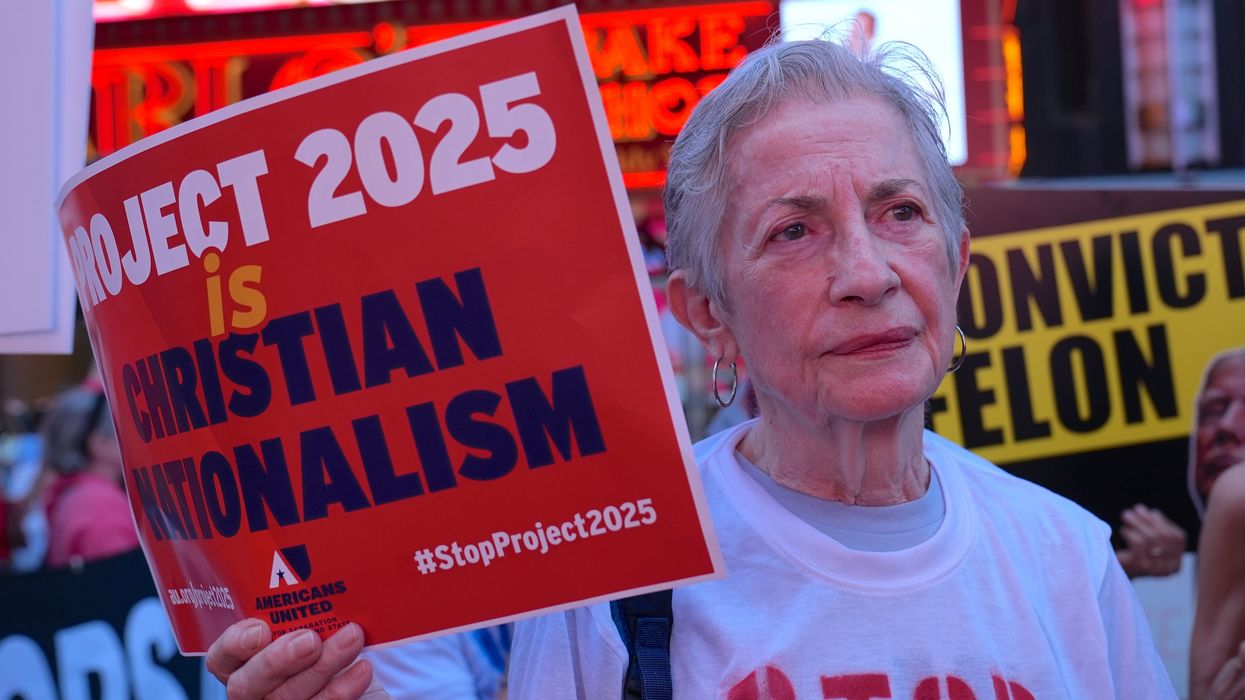American voters were under a lot of stress leading up to the Nov. 5 presidential election. That stress has continued given the uncertainty as to whether many of President-elect Donald Trump’s pronouncements are just negotiating techniques or serious proposals that he will implement through executive orders upon taking office.
Angst over our Constitution also prevails. Republicans have proposed concepts that would severely impact the separation of church and state concept that’s enshrined in America’s First Amendment, wanting to make Christianity the exclusive religion in our nation. Christian nationalism has also been supported by 91 state bills and is found in the right-wing Heritage Foundation’s Project 2025, a 922-page blueprint for Trump to follow in his first 180 days of office.
Many of Trump’s allies support the concept of Christian nationalism, whereby they believe America was founded as a Christian nation and only Christians have the power to infuse their theology within our laws. However, the separation of church and state does at least three things: It frees us from the possible oppression of an established church, it permits everyone to believe as they choose and it protects secular public education.
Andra Watkins, a best selling author who was raised in a Christian nationalist family, feels Speaker Mike Johnson (R- La.), Sen. Josh Hawley (R-Mo.) and Supreme Court Justice Samuel Alito are a sample of Christian nationalists who “ have infiltrated our legislative and judicial branches.”
It’s sad these right-wing entities weren’t good students of American history. As a quick review, America’s 13 original colonies belonged to the British empire and were subservient to an imperial church. The British monarchy formally lost control over its American subjects during the Revolutionary War. On July 4, 1776, and every Fourth of July since then, patriotic citizens celebrate religious freedom as well as political independence.
As Americans listen to the rhetoric proclaiming that the United States is a Christian nation, they should consider how the lack of religious freedom permeates more than 50 monarchies and authoritarian countries like China, Russia, Iran, North Korea, Hungary, Turkey, Saudi Arabia, Burma, Afghanistan and Syria.
It’s interesting the United States is one of the most diverse religious nations in the world yet we know almost nothing about others’ beliefs. Christian nationalism prioritizes an ethno-cultural, ethno-religious and ethno-nationalist framing around fear of "the other," and represents a serious danger to the 372 distinct faith groups in America
As stated by the Rev. Barry Howard, of the Church at Wieuca in Atlanta, “The principle of separation of church and state is not an attack on religion but a protection of religious freedom and individual rights. By maintaining this distinction, we uphold the values of democracy and equality.”
We all ought to reflect on and be thankful for America’s fundamental principle of separation of church and state given the uncertainties of what lies ahead.
The universal prayer “Dawning of the Spiritual Sun” by Sharron Stroud should be an important reminder to us all of the importance of honoring and respecting all religions in our nation:
Right now somewhere in the world
A Jew is saying his prayers,
A Hindu is chanting a mantra and a
Buddhist is kneeling at her sacred shrine.
Right now at this very moment someone is
Lighting a candle in a Cathedral,
Someone is making their haj toward Mecca
For it is the will of Allah.
And someone else lights a fire in a jungle,
Repeating an ancient mystical drama.
Many, many pathways up the mountaintop
And the view is always the same from the summit!
In the Dawning of the Spiritual Sun
For a moment all faiths became as One.
The Christian, Buddhist, Muslim, Jew . . .
Became as One and somehow knew.
That Mystic Voice that calls to me
“O yonder, yonder person, I Am Thee!”
Corbin is professor emeritus of marketing at the University of Northern Iowa.




















Trump & Hegseth gave Mark Kelly a huge 2028 gift